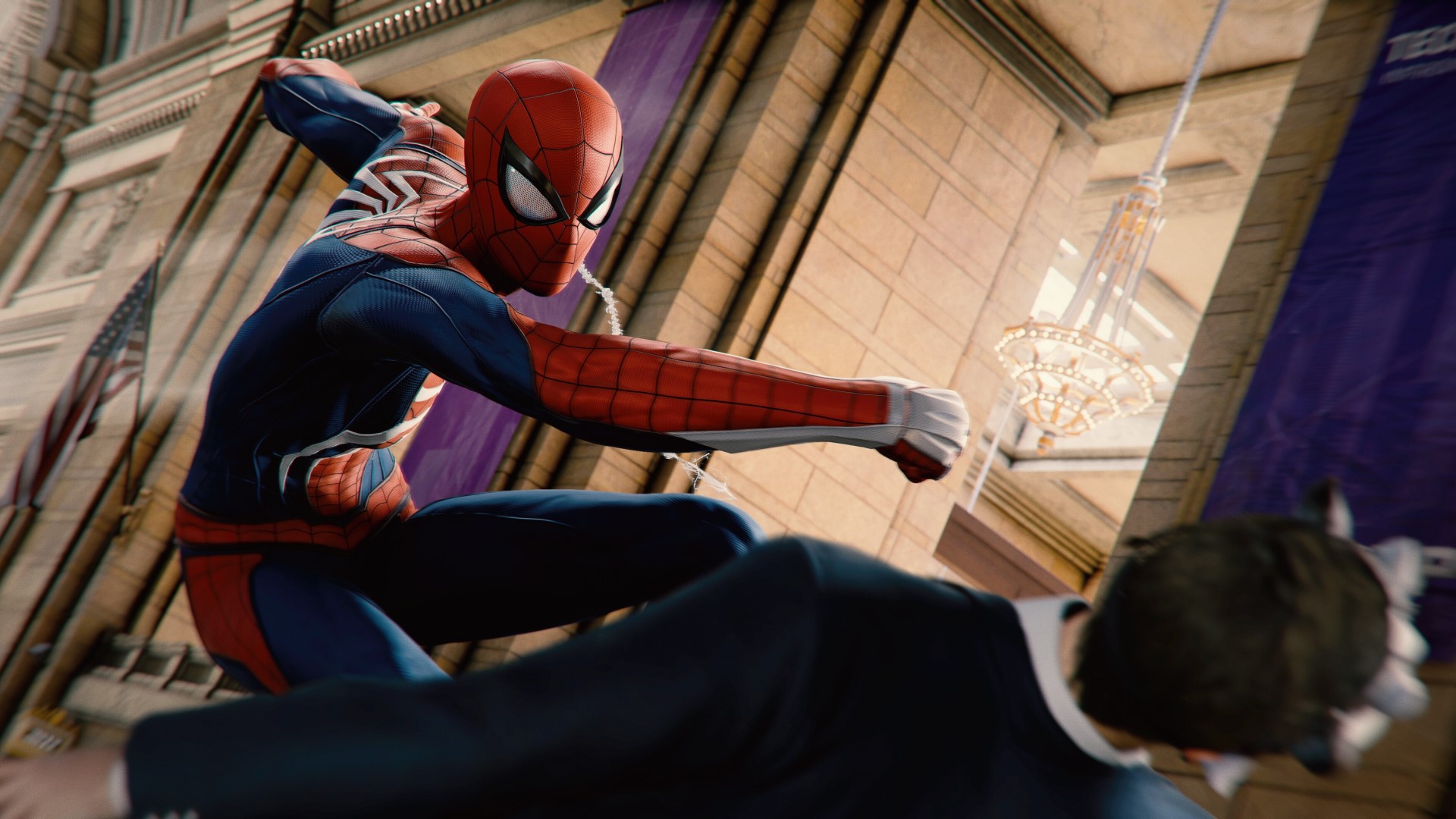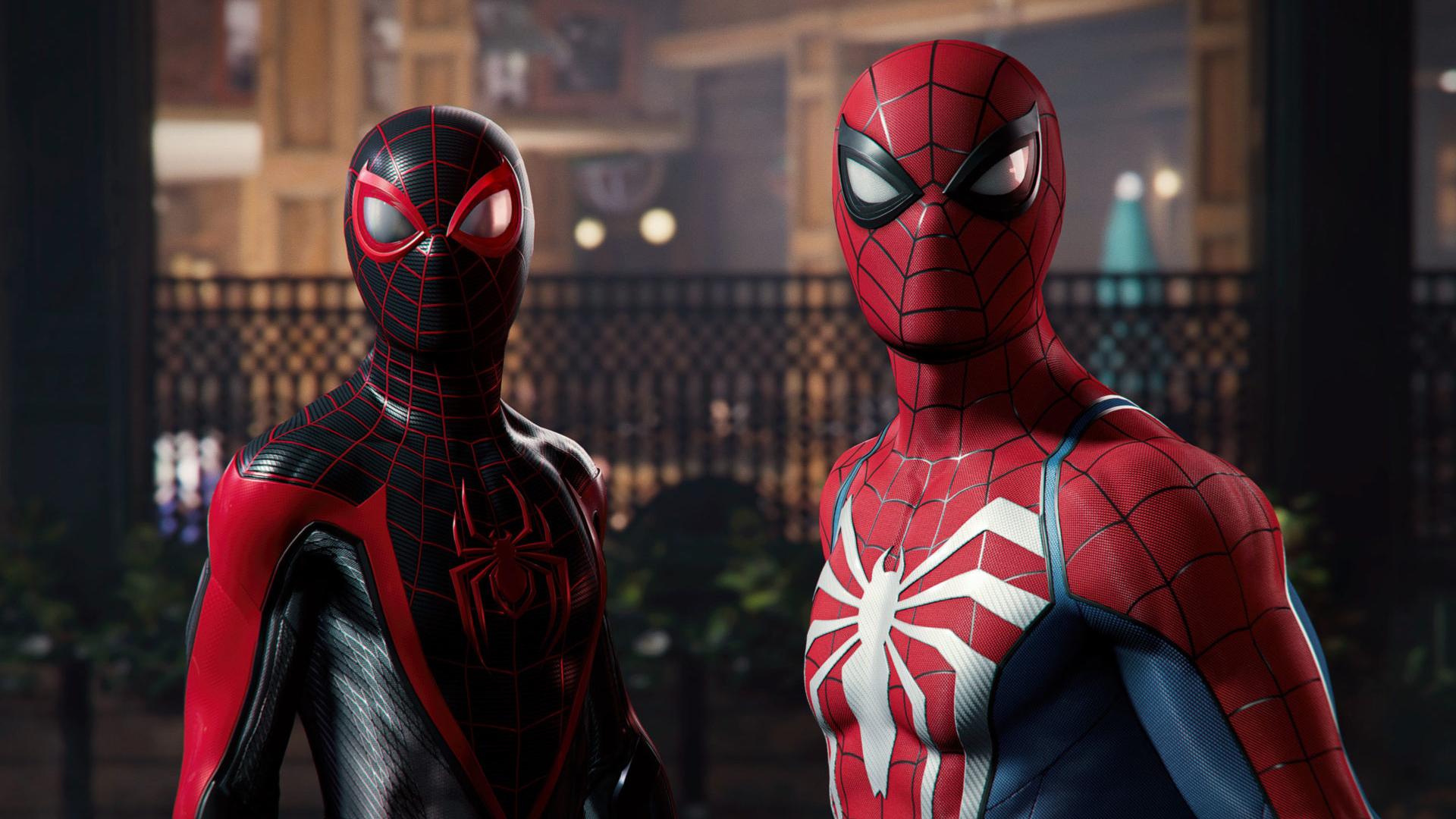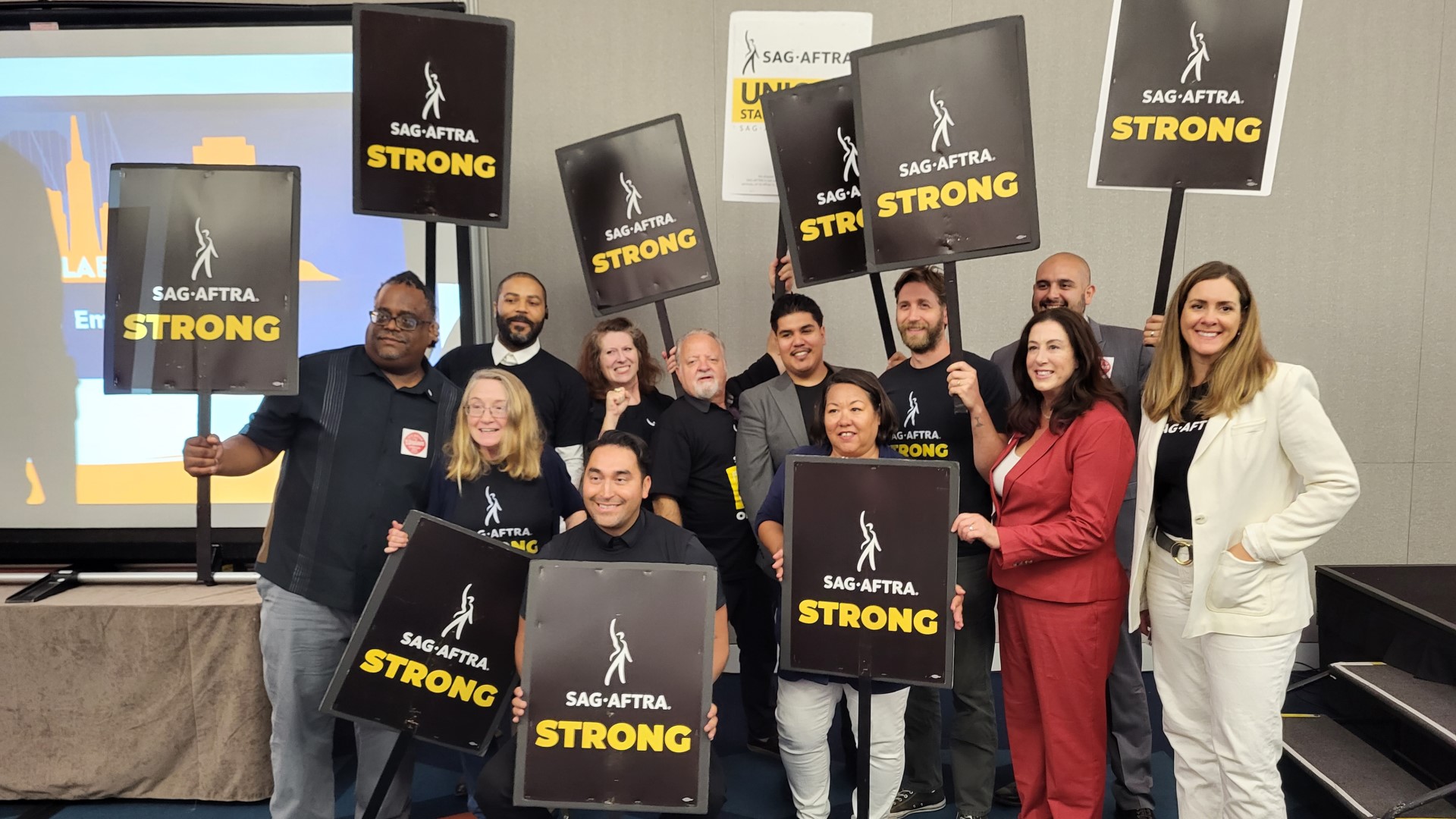Spider-Man's Yuri Lowenthal speaks about the growing issues with AI impersonation affecting voice actors
How can you tell the difference between what’s an AI and what’s not?

Sign up for breaking news, reviews, opinion, top tech deals, and more.
You are now subscribed
Your newsletter sign-up was successful
Artificial Intelligence, or AI, has become one of the most hotly debated topics around the world. Whether it’s the subject of a news story, a shiny new tool utilized for the film and TV industry, or simply a conversation at the dinner table, AI has become less of a fanciful trope of the science fiction genre and an increasingly integrated element of our daily lives.
The familiarity of AI in our lives brings with it concerns about how much we consent to as consumers and creators. The question of consent may seem a straightforward one, but, in the reality of living with a technology that we now know learns more about us than we initially realized, have we become too ambivalent about our own consent?
When Persona 5 voice actor, Erica Lindbeck found out that an AI impersonation had been made using her voice lines from her work as the character Futaba Sakura singing Bo Burnham’s Welcome to the Internet, Lindbeck asked for it to be removed. Though the original creator did remove the video, Lindbeck’s request spurred a conversation online. Fans supported her request but others blamed her for running a harassment campaign over what they described as a harmless video.
The backlash led to Lindbeck deleting her Twitter account and though she’s reactivated her account now, the events have brought to light just how misunderstood the importance of consent is in the online world. In response, voice actors such as Josh Keaton (Spectacular Spider-Man) and Khoi Dao (Genshin Impact) came out in support of Lindbeck’s request; stressing the importance of consent and creative control when it comes to the reproduction of work.
Losing your voice

Amongst those voice actors defending Lindbeck was Yuri Lowenthal. Well known for his voice work in more than 200 video games, Lowenthal’s extensive career as a voice actor, producer, and screenwriter has seen him star in roles such as Sasuke Uchiha in Naruto, The Prince in Ubisoft’s Prince of Persia Sands of Time and Peter Parker/Spider-Man in various incarnations of the character but most notably in Insomniac Games’ Marvel’s Spider-Man series. TechRadar Gaming spoke to Lowenthal and discussed the issues in detail.
“Many people don’t quite understand how strongly consent plays into this, but I’d argue that the majority of fans do understand and respect that,” states Lowenthal. “It seems simple to me. How would YOU feel to be impersonated? To be made to say things in public that you had never said nor would ever say? To not have control over your own voice? It’s terrifying. Everyone should be concerned.”
As more AI-generated work makes its way into our daily discourse the ability to tell the difference between what is fact and fiction will become harder
Lowenthal is correct, though the issue of AI-generated content is most publicly affecting those in industries that require a public profile in the media, they are simply the most accessible due to their work being more digital. As a result, it’s easy to immediately brush off what happened to Lindbeck as nothing more than a disgruntled actor wanting compensation.
Sign up for breaking news, reviews, opinion, top tech deals, and more.
“There’s still the misguided perception that all actors are fabulously wealthy and shouldn’t be complaining. They’re focused on compensation, rather than consent, so they think, “‘Hey, if I’m not monetizing this, why is it a problem?’”
As more AI-generated work makes its way into our daily discourse the ability to tell the difference between what is fact and fiction will become harder as the technology evolves. This combined with the fact that we live in a more digital world sped up due to the Covid-19 pandemic, means that we could enter into a world where AI-generated content spreads more misinformation via impersonations of people. As technology develops we could move into a world where fake news is indiscernible from reality.
Fact or fiction

This process has already begun with AI impersonations of politicians, such as an impersonation of Volodymyr Zelensky telling Ukrainians to lay down their arms. AI has also been found to be at the center of a number of recent fraud scams. In 2022 The Washington Post reported that 36,000 people fell victim to imposter scams that utilize AI impersonations of family members in distress to steal money, becoming the second most common racket in the United States in the last year.
For this reason, ChatGPT creator and OpenAI CEO, Sam Altman called on the need for government legislation to put in place protections to avoid the spread of misinformation before it’s too late. The legislation would also allow for much-needed creative control for those whose work lives online safeguarding the work of people like Lindback and other voice actors.
“I’m not against the technology at all, but because it was largely developed literally by feeding human performances into it, it can so easily be used to exploit those same performers. We’re just trying to get some guardrails in place because it’s moving so fast that current legal protections are woefully behind,” says Lowenthal.
Voice actors aren’t alone in needing better safeguards on their work
Though voice acting is the less visual branch of the world of acting, voice actors aren’t alone in needing better safeguards on their work. The entirety of the film and TV industry is grappling with how best to integrate AI and protect content creators. It’s for one of these reasons that both SAG-AFTRA (Screen Actors Guild and the American Federation of Television and Radio Artists) and the Writers Guild of America are currently protesting.
AI technology has begun to be used in order to bring to life certain characters when the actors who played them are no longer with us or to de-age actors for specific roles. Earlier this year, CBS News reported that AI company Metaphysic has developed a way to immortalize actors by preserving their likeness through data capture. What isn’t clear is what happens after that likeness is created, especially if the actor in question has passed away. With no legal safeguarding about how these likenesses can be used and who has access to them, an uncertain future is opened up.

“With technology, we’re no less at risk than on-camera actors, and, honestly, just about anyone.” Lowenthal explains. “We just happen to be in the spotlight for now. The tech is still so new and changing so fast, that people have yet to wrap their heads around how big a problem this could become. Sure we’re in the news, but until it happens to them it may be hard to conceive.”
This is not being said in order to provoke fear - AI stands to enhance our lives in a multitude of known and unknown ways. Lowenthal agrees, believing that this technology does have a place in the industry. “I know some voice actors who have been using it to their advantage! For both auditioning and work in some cases. But it all starts with a conversation with AI companies, some of whom have been willing to engage, but we still have a long way to go. Like most things in life, it requires good communication.”
We should work to better understand AI in relation to our own ability to consent in a post-privacy world and the only way through this is by implementing safeguards and legislation on a government level. It's also necessary for individuals to educate themselves and the next generation on both AI and its wider ramifications. The issues and encroachments may seem to only affect a few people or groups right now, but it won’t be long until we’re all impacted in some way, shape, or form. Therefore we need to ask ourselves: how we can thrive with AI rather than in spite of it?
Want to play some games with fantastic voice acting? Our lists of the best story games and the best RPGs have you covered.